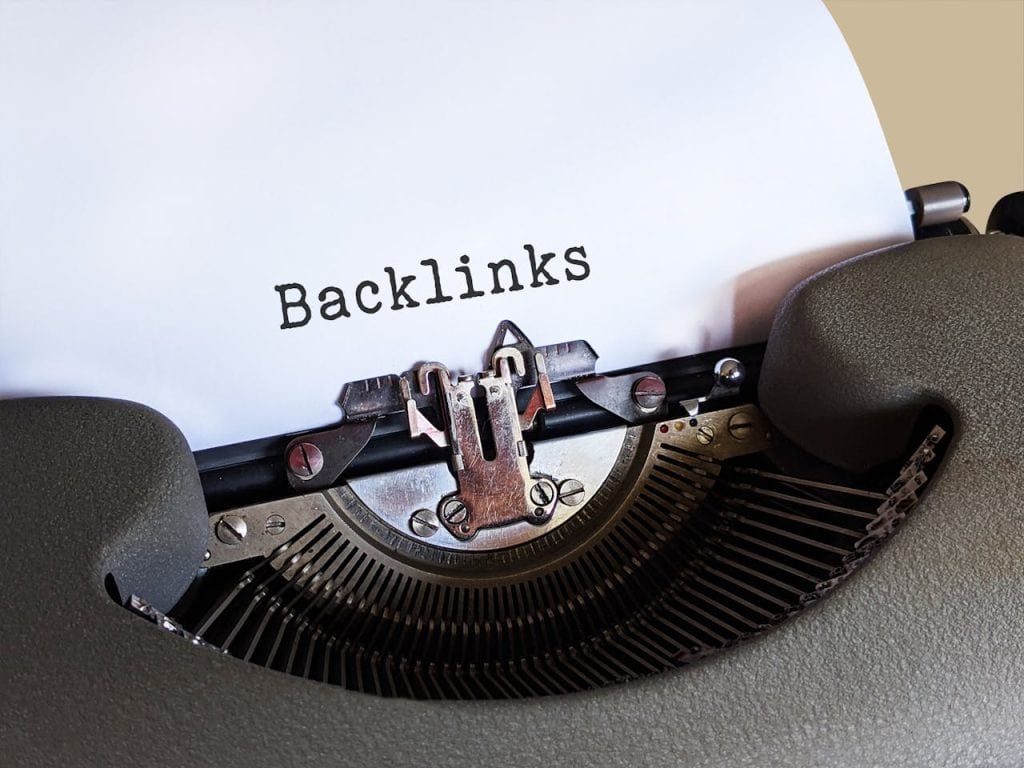So a project can feel totally wrapped up. The final files got delivered, the last invoice got paid, everyone did the polite “great working withyou ...
The Role of Artificial Intelligence in Business Innovation
Written by: Carolyn Young
Carolyn Young is a business writer who focuses on entrepreneurial concepts and the business formation. She has over 25 years of experience in business roles, and has authored several entrepreneurship textbooks.
Published on June 18, 2024

In business, innovation isn’t just a buzzword; it’s a necessity for survival and growth. Among the myriad tools driving this innovation forward is artificial intelligence (AI). As entrepreneurs navigate the ever-changing market dynamics, leveraging AI becomes crucial for staying competitive and carving out a niche. We’ve gathered insights from visionary entrepreneurs who have embraced AI, exploring its pivotal role in reshaping business strategies, enhancing efficiency, and fostering groundbreaking innovations.
AI as a Facilitator, Not a Source, of Innovation
While many are thinking that AI is going to be the source of innovation in their business, we’ve taken a different approach. The scope of innovation and imagination-like results by AI is very limited. You’re not likely going to see great strides in innovation if you leave it all up to AI. However, you can use AI to take some of the work off your employees’ plates, which then frees up their time for — you guessed it — innovation. AI is currently being marketed as the answer to everyone’s problems, but I see it more as a tool to allow your employees room to be more creative and innovative.
Ann Martin, director of operations of CreditDonkey
Revolutionizing the Retail Experience
In building Couch.com, we’ve used AI in various ways — content and image creation, data aggregation, and marketing ideas — but the area in which we’re likely to see the biggest impact is in regards to personalization. These days, AI is making it possible for retailers to use AI tools to help their customers find what they are looking for. Between Bing’s AI shopping assistant and Amazon’s newly unveiled Rufus, it’s clear that AI is solving a big problem for retailers in figuring out what their customers are REALLY looking for without making their customers do all the work. At Couch.com, we’re drawing in customers with an AI-powered quiz to help minimize the variables within the couch buying experience, cut out some of the noise, and send shoppers to the retailer that is actually going to have what they’re looking for.
Alex Back, CEO of Couch.com
Leveraging AI for Real-Time Data Insights
It puts real-world data at your fingertips really fast. Data from the real world on market trends and customers’ buyer personas for monitoring progress and mitigating risks are crucial for building, expanding, and sustaining any business. Before the advent of AI, collecting, organizing, and analyzing data could take days and even months, which could delay important business decisions and operations.
But now, artificial intelligence does a tiring job for you. It seamlessly fetches, organizes, and gives you reports based on factual data that helps you understand customer needs and wants, recognize and remove the bottlenecks in the supply chains, make improvements where required, and do comprehensive risk assessment. Therefore, AI lets you do business innovation that is not only sustainable and productive but also an ROI-generating machine.
The valuable insights on real-world data that we got by using AI, assisted and transformed by business for the better. My company, Toggl, creates various productivity tools, and this is how AI helped my business:
Modifying our strategies: we got to know the pain points of the workforce like:
- Remote workers had issues with collaboration and communication
- Managers had to switch between different sheets to plan and align different employees’ tasks
- Keeping track of the project’s progress, etc.
- The problem in hiring the right person with the respective job-specific skills
This info assisted us in creating and integrating our tools with features that can smoothly manage these and many other daily and frequent problems.
Alari Aho, founder & CEO of Toggl
AI-Driven Topic Selection and Title Generation
AI increased the success rate of our marketing campaigns. We’ve capitalized on AI for many ventures, including content marketing. It doesn’t mean that we took its help for content generation. We use it to find the best topics and titles for our content. We use an AI tool to find content with the most data traffic in our niche. It generates a list of best-performing content along with its shares, impressions, and engagement rates. We take its topic and create content to give relevant and unique information to the same audience. AI also helps when we struggle to find the best titles for our content.
Chetan Patil, owner of Suemybroker
Impact on Writer-Editor Roles and Processes
AI mainly affected content production in our industry. A few years ago, the process of content production looked like this:
- Research of the topic through search engines & reading of the other resources (writer’s responsibility)
- Creation of unique content based on the information collected in the first step (writer’s responsibility)
- Checking grammar, spelling, correctness of given information, context, readiness, SEO compatibility (editor’s responsibility)
- Demand revision from the writer, if necessary, and then check again
This was how written content published on a brand’s website or a media channel was produced. With AI, this process has changed for the better. First of all, there is no need for two different people (writers and editors). Most of the editors are good writers at the same time. That’s why, in this position, human writers are replaced by AI. Editors are using AI for the writing phase, and there is no need for a research step. AI tools write the content, and after that, editors check it. If something needs to be changed, editors fix the problem, and that’s all. The content is ready!
Emine Göksu, general coordinator at Markethinkers Agency OÜ
AI-Driven Social Listening for Enhanced Customer Understanding and Retention
Our brand wanted to utilize social listening to comprehend our customers better. AI played an integral role in getting the best insights. It recognized patterns that we missed in our analysis. It scrutinized social conversations like posts with our brand mentions and customers’ queries and feedback on our social media accounts. It helped us understand what our customers expect from our brand, how they like our services, and the issues they face. We made necessary changes in our business operations and implementation of services to satisfy them. It resulted in robust retention of customers.
Eli Cohen, co-founder of The ADU Guide
AI-Powered In-House Advertising
AI has helped me do my advertising to generate leads completely in-house without the help of a marketing team. AI can now build really good emotional scripts for my YouTube ads and great ad copy for my Facebook ads. This results in me using ChatGPT to generate scripts for video ads. After this, I ask what type of b-roll videos would go perfectly with the ad, and AI guides me. I have built my ads 100% by following AI’s guidance. This has resulted in high conversions and extremely low-cost leads for my agents and me. Our leads are currently generating $10–$15 a lead with a 20% conversion, which keeps us over and above our ROI.
Timothy Connon, founder & CEO of ParamountQuote Insurance Advisors
Fact-Checking Challenges
We could, but never would, use AI to write our tour scripts for us. However, we absolutely use AI to match our intended voice and strengthen wording, as well as, of course, checking grammar and the like. I believe within one year, we will be able to write scripts about 90% complete with AI, thus replacing that job. Facts will still need to be checked, but getting 90% there with AI eliminates a lot of work. However, it takes as much work to fact-check AI as it does to write something competent. I don’t think AI will ever get facts correct, as the internet (which is the data that’s feeding AI) is littered with misinformation.
Christopher Falvey, co-founder of Unique NOLA Tours
The Limitations of Current AI Capabilities in Business Innovation
Honestly, the AI we currently have is only good for producing human-sounding text and some lower-quality images. It improved my email writing, sometimes helped a little with brainstorming, and improved text production, but it won’t be completely revolutionary and never will be for 99.9% of companies. For copywriters and content producers, it may be interesting and may add a bit of efficiency to day-to-day business tasks and management, but the problem of the average quality it produces is there.
As far as innovation goes, honestly, most of the things that come from AI are nothing more than rebranding ChatGPT or its API with a different interface and producing average text en masse or average images at scale, which does not drive innovation. Real AI, like machine learning and mathematical models, has been around since the 1960s, and we have used it in many fields. It drove a lot of innovation, but the basic problem of good data and reliable data is the biggest problem, especially for some AI and LLM models.
Benjamin Talin, founder & CEO of MoreThanDigital
AI-Driven Chatbots and Data Analytics
It’s becoming more common for online stores to use AI chatbots to help customers with queries and purchase items. There’s room for them to use the same technology to proactively suggest products while chatting to customers. With the new video AI platforms that have launched this year, customers could speak to a virtual shopping assistant while they browse a store. With marketing, it’s becoming vital to get relevant data about prospective customers. AI has the ability to use lead lists to gather more information about potential customers. It can generate tags for targeted marketing and even suggest the best social media platform to post to. This will provide proactive marketing to a wider variety of businesses.
Anders Blomqvist, co-founder of Cannabiva
Transforming Coding Efficiency
As a seasoned web developer, I’ve seen that AI is a game-changer in coding. For example, my IDE Visual Studio Code has an integration with Github Copilot. This little coding assistant is capable of giving suggestions in real time when coding. Also, it has a chat feature where you can ask questions about explaining code, refactoring, or creating tests. I have to say it is a huge time saver in my work. It allows me not just to work faster but to write more accurate codes. Github Copilot is getting smarter by reading code from GitHub.com as well as by the users who are using it. Last but not least, this AI tool constantly learns my coding style and patterns and adapts to them, so the suggestions are more and more relevant and accurate.
Gábor Hódos, web developer at TechUntangle
AI-Powered Prediction Tools for Enhanced Lottery Number Selection
We are actually currently looking at integrating of AI-powered prediction tools to draw more visitors craving data-backed guidance on number selection. What we think we can do is train customized machine learning algorithms on historical lottery results, identifying subtle patterns imperceptible to the human eye.
The system would then analyze frequencies, sequences, averages, wheeling, filtering and hot/cold trends, and then it could run thousands of intelligent simulations to generate number combinations statistically more likely to get drawn next. If for example AI-powered picks demonstrated a measurably higher probability of winning compared to random quick picks then that could be game changing catnip for players.
Liam Wilson, editor-in-chief of Lottery ‘n Go
Streamlining Crowdfunding Processes
AI plays an integral role in company innovation, especially when you have tons of data regarding what drives projects, what type of stories spark emotions, etc. Analyzing all of this is not possible for a human mind without a coffee overdose. This is where AI comes into play, it helps businesses achieve their goals quickly and effectively by providing valuable insights. When it comes to crowdfunding, AI not only suggests projects but also helps in improving the overall process. It includes everything from personalizing how potential donors are approached to figuring out problems arising in crowdfunding due to changing patterns. AI guides you in a way that all your efforts get you to your desired results.
Gerry Poirier, founder & CEO of AngeLink
Unleashing Serendipity
Some companies are exploring the concept of serendipity engines, which are AI-powered systems designed to surface unexpected connections or opportunities. These systems leverage natural language processing, network analysis, and recommendation algorithms to identify serendipitous insights or collaborations within organizations or across networks of partners and stakeholders.
Unlike traditional search or recommendation systems prioritizing relevance and familiarity, serendipity engines actively seek unexpected connections and unconventional insights, aiming to spark new ideas, aid in brainstorming, and collaborations, and identify opportunities.
Whether by recommending relevant content from unexpected sources, connecting individuals with complementary expertise or interests, or identifying common themes across disparate domains, serendipity engines can potentially empower organizations to harness serendipity as a strategic asset for driving innovation, creativity, and competitive advantage.
Daniel Kroytor, founder of Tailored Pay
Revolutionizing Video Production Processes
The role AI has played in my business, and the role in my client’s business is streamlining the video production process. Tools like ChatGPT, Dall-e, Descript, and Opus Clip all play a critical role in planning and production, which saves time. ChatGPT, for example, is a valuable resource for SEO-friendly, click-worthy video titles. It also serves as a sounding board for video content planning and hook development. Dall-E is a creative tool for designing original thumbnails that stand out. The text video editing tool in Descript has saved hours of editing time, while Opus Clip is a one-click resource for repurposing long-form videos into short video clips. These clips result in keyword-generated titles and descriptions as well as the option to include fancy Hormozi-style captions. The entire video production process takes a fraction of the time it did pre-AI.
Vicki O’Neill, video marketing coach & creator of Video Acceleration Vault
Leveraging ChatGPT in Crafting Life Stories
I run a company that helps people write their life stories affordably, and AI has changed how I do business where it can serve as a support mechanism but cannot supplant original thought. Unless the details of a person’s life exist online, ChatGPT cannot write that person’s story. It does not know who that person is, what her favorite dessert is, where she was when her favorite team won the Super Bowl, who she took to prom, or how she came up with her pet name for her spouse.
Conversely, for someone whose life is detailed online (think politicians, movie stars, influencers, etc.), there’s a good chance that some of what ChatGPT writes will be inaccurate or flat-out false. I conducted an informal test for my company to see how well ChatGPT would handle some of the writing prompts I threw at it, and though it got some of the details right, it nevertheless returned text that contained factual errors. For such powerful technology, ChatGPT could not provide historical weather conditions for Paris on a specific date and year (I tried the prompt again to see if anything changed, but I received the same “I don’t know” response).
When my customers ask if they can rely exclusively on ChatGPT, I tell them they run the risk of getting imperfect results or no results at all. However, AI can help would-be memoirists right now. First, let’s say an author answers some writing prompts that provide insight and details into her life. Then, she could paste that text into ChatGPT and use a prompt like “Rewrite the following entry using an informal, joyous tone about the experience of falling in love in Paris, including sights, sounds, and emotions of the city to generate a new draft with more flourish.” Use the same chat folder in ChatGPT while writing about a specific topic because the software will learn as the conversation continues and return better and more relevant responses. These drafts may help an author develop more promising angles or writing styles. I believe ChatGPT will continue to support my customers in their ability to craft their narratives, and I will be there to guide them through that process.
Barbara Richter, founder of DIYBook and In Ink Ghostwriting
Enhancing Labor Productivity
The role of AI in business innovation centers around productivity. Here is an example with some context. Agilence is a SaaS company providing analytics that help retail, restaurants, and grocery stores reduce shrink. One of the biggest challenges and largest expenses is labor. These companies have a difficult time hiring, training, and retaining staff. There is always more to do than the staff can handle. AI can help by making those employees more productive.
For example, Agilence’s software uses analytics to detect operating anomalies and alerts staff to them. The challenge is that many of them are false positives. This is where AI can help. AI can determine which ones are actually areas that need attention. This helps direct time-strapped staff to work on the highest most important issues that deliver the highest value to the company. In this way, AI can significantly increase productivity. What’s more, over time, AI can learn to optimize the process even more, becoming a virtuous cycle.”
While it’s transforming our customers more than us, it has changed our entire approach to product development and what we’re building. In this case, machine learning is useful for boosting labor productivity in retail stores by applying ML algorithms such as Random Forest models and others to data sets to identify anomalies.
Dillon Garrison, content manager at Agilence
Harnessing AI for Rapid Prototyping and Iteration
AI allows businesses to rapidly test and iterate on new ideas at a fraction of the time and cost. With advanced simulation and generative capabilities, prototypes that used to take months or years can now be built in days or weeks. This accelerated experimentation lets companies bring innovative products and services to market faster than ever before.
I remember when we were developing our latest chatbot assistant. In the past, it may have taken over a year just to define requirements, build a prototype, test it manually, and repeat that cycle endlessly. But with AI, we created working prototypes in a matter of weeks. The bot even helped us write parts of its own code! We went through more iterations and learned more in a few months than we may have in years previously. Now, we can release cutting-edge assistants that evolve with our customers’ needs. AI makes business innovation faster, cheaper, and more customer-focused than we ever thought possible.
Gauri Manglik, co-founder & CEO of Instrumentl
Subscribe to Our Newsletter
and gain insider access to cutting-edge business insights and trends.
Featured Resources

What Happens When a Client Disputes a Project a Year Later?
Published on February 13, 2026
Read Now

How to Manage Multiple Financial Goals at Once
Published on December 31, 2025
Keeping up with several financial goals at the same time can feel like juggling too many things at once. Saving for a home, paying down credit cards ...
Read Now

The Link Building Services E-Commerce Brands Are Relying on in 2026
Published on December 22, 2025
E-commerce link building in 2026 feels calmer than it did a few years ago. Not easier, but calmer. The panic around chasing every new tactic hassett ...
Read Now
Comments